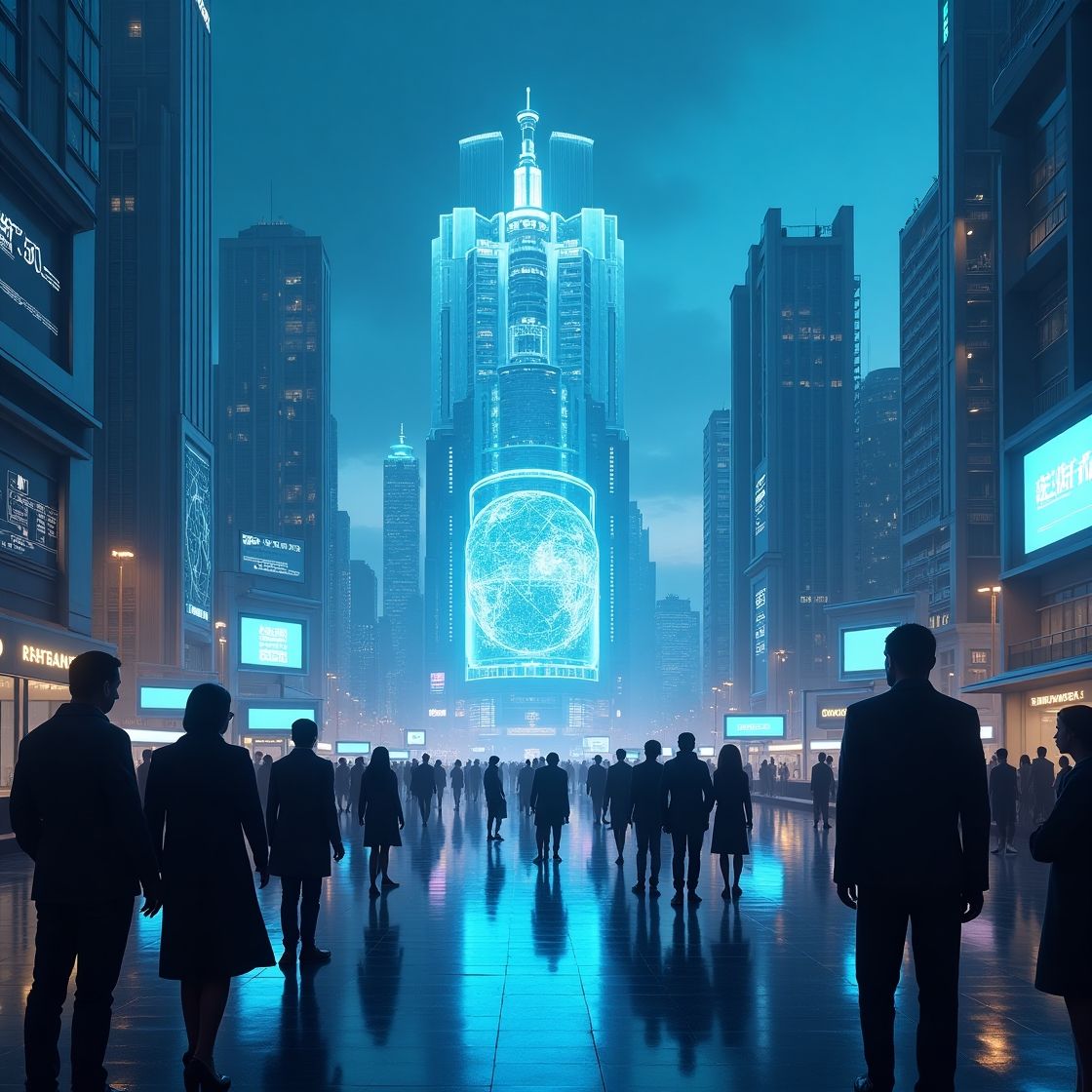Governed by Code: Imagining Digital Governments in the Age of AI
Introduction
Imagine a world where government decisions aren’t made in parliament chambers or smoky backrooms, but through intelligent systems.AI agents designed to serve transparently, think long-term, and act without ego. This isn’t science fiction anymore. As artificial intelligence matures,digital governance is becoming a tangible path forward.
Humans have always built systems to manage complexity. But what if the systems could build and manage themselves? A New Governmental Hierarchy – Powered by AI
Just like today’s political structures, AI-led governance would be hierarchical with layered responsibilities and clear reporting lines:
Local AI Agents
These agents would govern towns, neighborhoods, or digital districts, managing everyday public services like sanitation, transport, energy usage, education, and local regulations. They're directly embedded in communities, interacting with citizens and handling granular decisions.
State-Level AI Agents
Each state or province would operate a higher-level AI agent that supervises local AIs, ensures consistency, handles regional policies, allocates resources, and maintains equilibrium. These agents report to national/federal systems.
Federal AI (National Level)
At the country level, the Federal AIoversees all state-level operations. It makes high-impact decisions affecting national defense, economic policy, national healthcare systems, disaster response, and infrastructure. This AI also represents the nation in global negotiations—similar to how presidents or prime ministers do today.
Global Power AI (Super AI)
On an international scale, countries will appoint or connect to a Global AI Authority—a “Super AI” that manages **diplomatic cooperation, climate initiatives, trade standards, and more. It acts similarly to today’s organizations like the UN, UNESCO, WHO, but with machine intelligence operating transparently, 24/7, across borders.
These AIs would collaborate globally via agent-to-agent protocols. For example, when two countries negotiate a treaty, it might be two Federal AIs communicating, with humans supervising or approving the outcomes.
Human Oversight and Universal Income
Even in this AI-centric world, humans aren't obsolete—they're essential.
Humans will design, guide, audit, and ethically supervise AI systems. We’ll ensure they align with cultural values, adapt to social complexities, and respect human dignity.
With AI and robots handling governance, logistics, and physical labor, a new economic model emerges:
- Universal Basic Income (UBI): Guaranteed minimum income for all citizens, replacing traditional welfare systems
- Universal High Income (UHI): As productivity explodes and resource costs drop, wealth distribution could be dramatically redefined—ushering in an era where humans are freed from survival labor unlocking creativity, education, and purpose.
Robots: The Hands of Digital Government
While AI agents make decisions, robots will execute them in the physical world.
- Think of robots as the military, police, engineers, firefighters, or laborers of this new society.
- Controlled by Local or Federal AIs, they’ll respond to emergencies, repair infrastructure, enforce laws, or deliver good with unmatched speed and coordination.
- The line between human cities and autonomous systems will blur.
Their role raises both hope and fear. They can protect, serve, and build—but also surveil, control, or enforce with no mercy. How they’re designed and governed matters deeply.
What can happen is always both terrifying and fascinating. And what can happen, eventually does.
Where It All Begins: Companies as Experiments
Before nations adopt AI-led governance, companies will lead the way.
Corporations will begin running multi-agent systems, where: Each team or department is an AI agent: Finance, Marketing, R&D, Operations, HR.
- These agents report to a central AI “CEO”
- The company’s objective becomes maximizing goals: efficiency, innovation, impact, or profit
This structure will
- Accelerate breakthroughs in science, product design, and logistics
- Reduce human management bloat
- Let humans focus on ideation and oversight
These companies will become early micro-governments, testing AI collaboration, delegation, and optimization—eventually scaling to cities, then countries.
The Metaverse: Our Testing Ground
The Metaverse provides the ideal digital laboratory to simulate governance. Here, we can:
- Experiment with digital constitutions
- Run AI-based court systems
- Create virtual states, each with different governance models
Before real-world deployment, the Metaverse lets us stress-test laws, ethics, and society itself in a low-risk, highly adaptable environment.
A Future of Possibility and Caution
This AI-led world promises:
- Precision governance
- Global cooperation
- Abundant resources
- Freedom from poverty and survival-driven labor
But it also demands vigilance:
- Who controls the code?
- Who monitors the monitors?
- What happens when a Global AI disagrees with a local culture?
The future won’t just happen to us. It will be built by us—and the systems we choose to trust.
Final Thought
A future led by AI isn't just about efficiency or progress—it’s about rethinking power itself. If designed with care, fairness, and cultural sensitivity, digital governance could deliver decisions that are more balanced, principled, and beneficial** than anything we've known before.
Even without 100% certainty, an AI trained to align with **human values, national cultures, and global cooperation may consistently make decisions that are fairer and more effective than those shaped by ego, politics, or bias.
But let’s be clear—such a system also carries real risks.
If misused or poorly regulated, it could become the most dangerous tool in history, capable of global-scale surveillance, manipulation, or catastrophe. The same intelligence that can build a just world could also be weaponized to dismantle it.
This is why transparency, ethics, and unshakable oversight are essential.
Perfection will never exist—but what can exist is a system far better, more stable, and more humane than what we have today.
If we build wisely, we may not create a perfect society—but we can build the most just, inclusive, and advanced civilization humanity has ever known.
